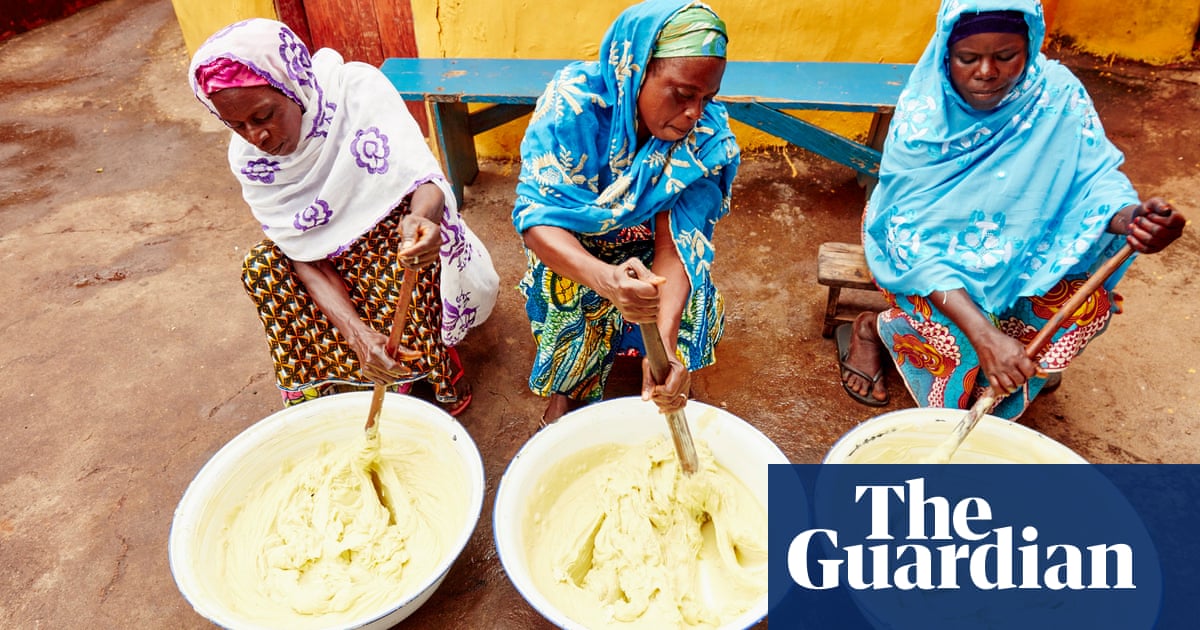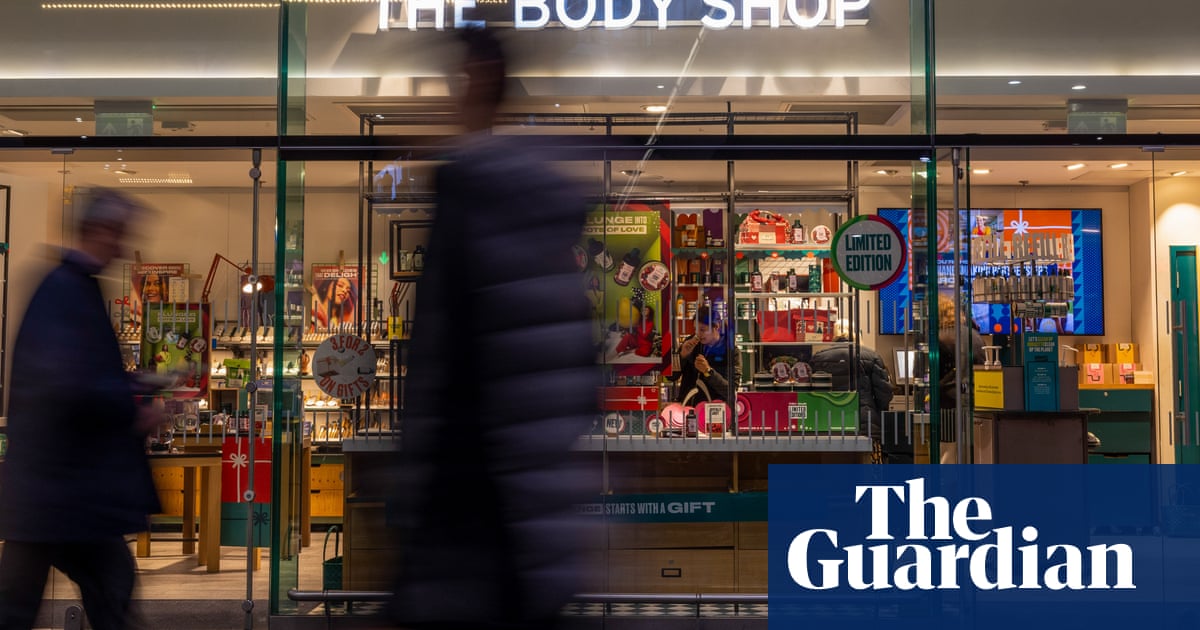
The Body Shop’s fair trade suppliers who work with vulnerable people from the Amazon to Africa say they have been left with more than $1m worth of beauty ingredients that may now never be ordered or paid for by the ethical beauty chain.
The retailer, which called in administrators to its UK arm last week, has partnerships with 18 community fair trade partnerships around the world via its own scheme. Many of the relationships have been in place for more than 20 years.
Several told the Guardian they could be left with hundreds of thousands of dollars of stock – a figure that may not be large by corporate standards, but suppliers said it was very meaningful to families living on low incomes in often remote areas.
The Body Shop’s UK arm continues to trade as usual, administrators from the accounting firm FRP said, and creditors will be kept informed as the process moves forward.
However, any supplier debts will be lined up behind many other creditors – and orders could shrink if the stores are closed.
Aurelius, the restructuring specialist that bought Body Shop for £207m in a deal finalised last month, is understood to be the main creditor with a secured debt which will ensure it gets paid. It is expected to take back the chain, but only after many shops have closed.
The future of the group’s Irish, mainland European and Japanese divisions also hangs in the balance. The German business was put into insolvency last week.
Several community suppliers told the Guardian they had no written contract with The Body Shop, but had produced an agreed amount of product for the business for many years.
Gaston Vizcarra, president of Candela Peru – which has been providing Brazilian nut oil for The Body Shop since 1998 from nuts collected by 400 local families in the Amazon – said there was a $0.5m inventory of oil on hold for the retailer. “We don’t have any debt, but for more than two years we have manufactured this oil ready to go. There is no contract. It is based on trust.
“We usually sell a certain volume but The Body Shop has not been buying for at least a year. It has affected our capacity to work with producers and buy nuts from them.”
Most of the fair trade community projects do not supply The Body Shop directly. They sell their ingredients to intermediaries such as oil refiners or one of the group’s 20-plus cosmetics and beauty product manufacturers.
The producers are concerned that if manufacturers are not paid by administrators to The Body Shop, they in turn will not be paid.
“It’s a worry,” said the head of one community producer group based in Africa which works of thousands of individuals. “We are all affected, whatever the changes coming up. It is going to affect the whole supply chain.”
Mayk Arruda from CoppalJ, a Brazilian cooperative working with local communities that produces oil from the Babassu palm which grows in the Amazon, said it had just received an order for 30 tonnes of oil worth more than €300,000 and was concerned that it may not be paid.
“We work with 258 families directly and can impact more than 1,000,” he said. “If we are not paid, we are going to face a big problem. It is very important for us to generate a good quality of life.”
He said the higher price paid for the oil by The Body Shop had generated a “revolution in families’ lives” and there was a concern “that we will lose [that].”
Nick Hoskyns has supplied The Body Shop with sesame oil from the Juan Francisco Paz Silva cooperative in Nicaragua since 1993. The group works with 270 families. It has about $300,000 of sesame oil in stock that was produced without a contract.
“We have a relationship of trust and exclusivity of over 30 years which has been more than a contract. A break in trust has happened with Aurelius. There has been a sort of cultural bucket of water being poured over us.
“How can this happen to such an amazing company that has done so much?”
Some fair trade suppliers deal directly with The Body Shop and so may miss out on payments as they will be in line behind secured creditors, such as Aurelius, in the UK arm’s administration.
Milan Dev Bhattarai is the founder of Get Paper Industries in Nepal, which has been providing handmade recycled paper packaging to The Body Shop since 1989 via a partnership brokered by The Body Shop’s founder, Anita Roddick.
Dev Bhattarai said the company was not owed money but he added: “If there are closures of The Body Shop UK, not only more than 500 producers will have negative impact in their lives, but hundreds of girls will lose the opportunity for education, thousands of children will miss the opportunities for improved school. People of local communities will lose health support and many girls might be trafficked for difficult life. Tree plantation will be disturbed.”









